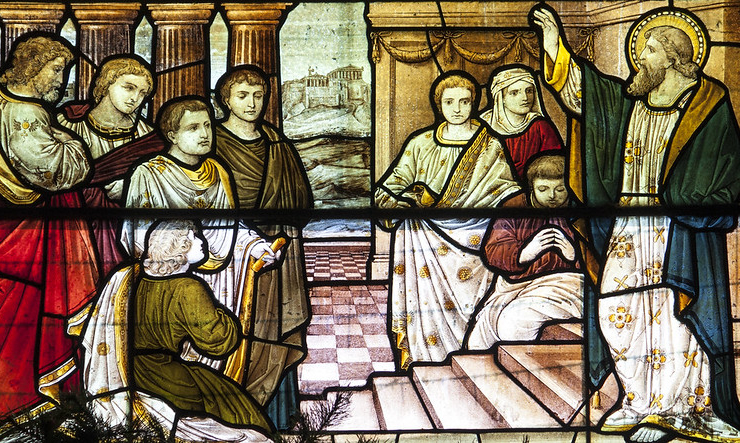Even though it has been two thousand years since Jesus said, “Go therefore and make disciples of all nations” (Matt 28:19), the world seems far from repentance. Even though it has been eight hundred years since Saint Dominic founded the Order of Preachers to preach for the salvation of souls, the world still seems far from repentance. Is preaching a hopeless endeavor? And since we are all called to preach (CCC 3), what are we to do?
At the Last Supper, the apostle Saint Jude Thaddeus, whose feast day is tomorrow, asks the Lord: “Lord, how is it that you will manifest yourself to us and not to the world?” (John 14:22). God has revealed himself to us, but in his great plan of mercy, he has not done this in the same way for the whole world. That is, while his mercy is offered to all, many people are far from accepting it. Thus, with St. Jude Thaddeus, we ask, “Lord, why us? Why have you chosen to show yourself to us but not to the world?”
Why should we worry about this question? The Lord showed himself to St. Jude both bodily in the Resurrection and by the indwelling of the Trinity, which he promised when he answered his question (John 14:23). But since Jesus did not reveal himself to the world as he did immediately to the apostles, we can infer that Jesus expected St. Jude to preach. And the same goes for us who have received the Gospel, for us who love Jesus and keep his word. We too are called to preach: “There is in my heart as it were a burning fire shut up in my bones and I am weary holding it in, and I cannot” (Jer 20:9).
The desperateness of our call to preach to a world that appears more and more to be a lost cause should lead us to St. Jude, who is the patron of lost causes and desperate situations. Furthermore, meditation on the apparent hopelessness of our own call to holiness apart from grace shows how we truly need St. Jude’s intercession.
The Lord requires much from us. He asks us to give him our very lives as we go out to preach his truth. Preaching requires that we give Christ everything, but without grace, this is impossible. When Jesus asked this of the rich young man through his invitation: “If you would be perfect, go, sell what you possess and give to the poor, and you will have treasure in heaven; and come, follow me,” the rich young man went away sad (Matt 19:21). The Lord demands that we give him everything, but we need his help to do it: “With men this is impossible . . . .” (Matt 19:26). We must recognize in ourselves that same potential for hopelessness like the rich young man. We need God’s grace to receive the call. We need God’s grace to answer the call.
We know that the saints were not hopeless, but they did forsake all hope that they could spread the Gospel to all the world on their own. For their hope is in Jesus Christ. After Pentecost the apostles were new men with new hope so that they became, like St. Dominic a millennium after them, preachers of grace. In response to our call to preach, we ought to beg for their intercession.
And this is where the preacher finds himself. Is preaching for the salvation of souls a lost cause? “With men this is impossible, but with God all things are possible” (Matt 19:26). Saint Jude Thaddeus, patron of lost causes and desperate situations, preacher of hope, transform our difficulties and teach us hope in Christ.
✠
Photo by Fr. Lawrence Lew, O.P. (used with permission)







